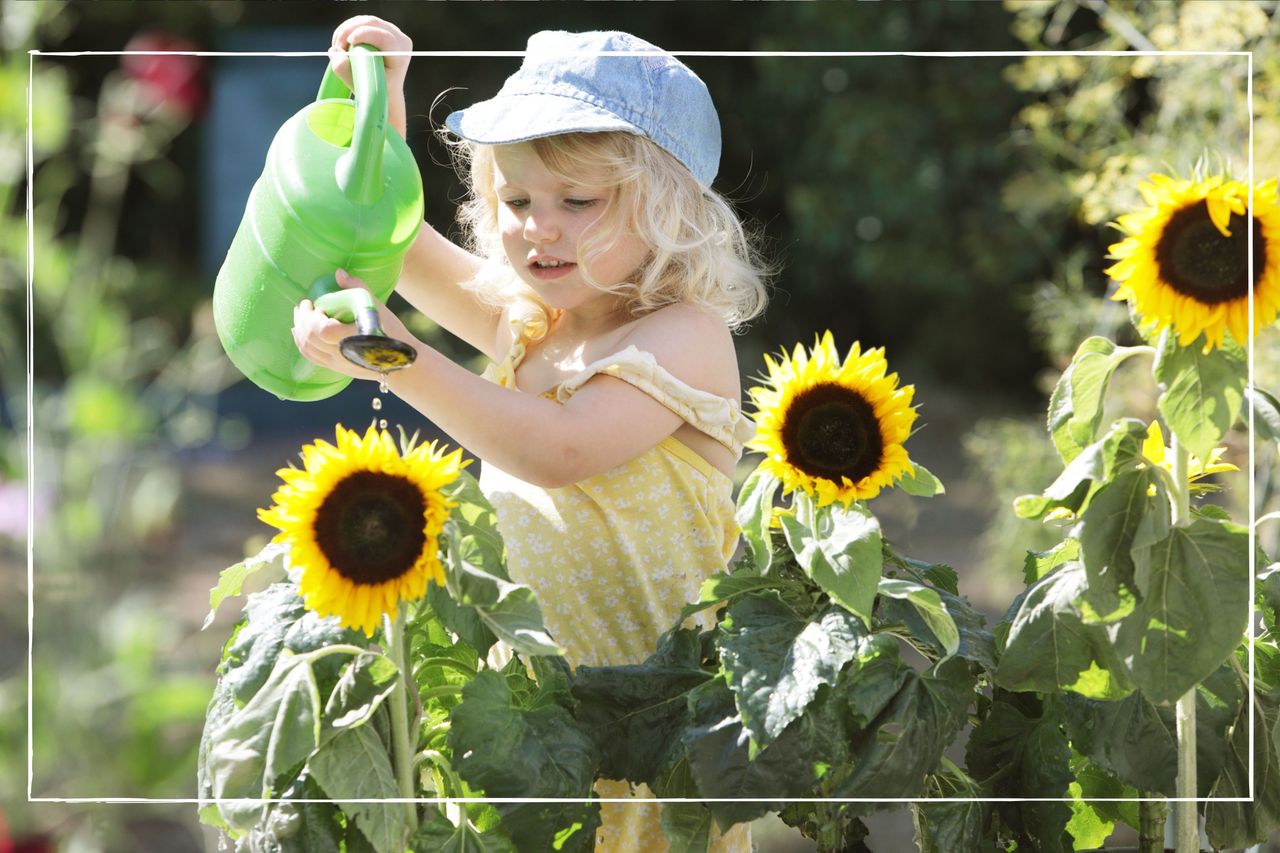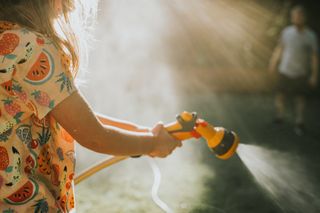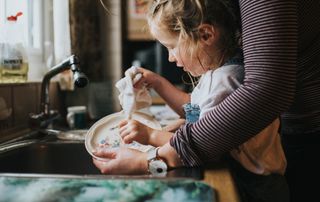How to save water - 27 expert tips to reduce your water usage
If you have a water meter, knowing how to save water is key to keeping your water bills low. Check out these expert tips to reduce your water consumption

Learning how to save water will be key for many families, especially as the cost of living crisis puts further pressure on household budgets.
But did you know that if you have a water meter, you can reduce the amount you pay by using less water? This will be especially useful at a time when millions of households will be worrying when national insurance will go up and how much their energy bills will cost.
According to Water UK, the average bill went up by 1.7% in April but households in some areas saw their bills rise by 10%.
But it’s not just about money - it’s about the environment too. Climate change could lead to water shortages, with the UK Environment Agency warning that people in England could face shortages by 2050 unless we conserve more water.
An Ofwat spokesperson says: “Using less water is an important part of the fight to secure our water supplies for future generations, as climate change is making water increasingly vulnerable. It means we can reduce the water taken out of important rivers and reduce pressures on our infrastructure while saving you money if you have a water meter.”
Many households will be able to bag water-saving gadgets from their water company – for free.
MoneySavingExpert’s utilities expert Gary Caffell says: “It differs per firm, but gadgets generally available include shower heads (which help regulate water usage), tap inserts (to regulate water flow), garden hose nozzles (also to regulate flow) and 'Buffaloo' cistern bags (which you place into your toilet cistern, so each flush uses less water).”
GoodtoKnow Newsletter
Parenting advice, hot topics, best buys and family finance tips delivered straight to your inbox.
How to save water - 27 simple tips
1) Turn off the tap while you clean your teeth
Save Water Save Money has joined forces with 19 of the UK's water companies to promote the ‘Turn Off the Tap’ message. It says turning off the tap while you brush your teeth will save about 12 litres of water each time. Southern Water says households who do this will save about £15 a year.
Similarly, if you tend to leave the water running while you wash your face, stop. It's literally money down the drain.
2) Take showers instead of baths
A five-minute shower uses about a third of the water of a bath (we've done the sums in our guide to how much does it cost to run a bath). Consumer Council for Water senior policy manager Karen Gibbs suggests shortening your shower length too. “If two people living together each halved their daily shower time from 10 minutes to five minutes, they could make a combined saving of about £300 a year on their water and energy bills”, she says.
3) Use an aerated showerhead
Waterwise says this type of showerhead, which combines water and air, will use about six litres of water per minute, compared to 12 litres a minute with a standard showerhead.
4) Buy a ‘Hippo the Water Saver’
This device helps conserve water in toilet cisterns. The manufacturers say a typical family uses 70% of their water in the bathroom, with toilet flushing accounting for 30% of household water use. Every time you flush the loo, a Hippo will save 3 litres of water.
Buy a ‘Hippo the Water Saver’ (£2.99 on Amazon)
5) Upgrade to a water-efficient toilet
Dual flush toilets let you choose how much water to use. They typically use 4 to 6 litres of water per flush, compared to old-style flush systems which use about 13 litres. To make the switch, you can either buy a brand new toilet or just upgrade the flush functionality.
Ecovibe CEO Jos Battle adds: “Don’t unnecessarily flush your toilet. A common wasteful habit is to flush the toilet every time, even for little things such as a tissue after blowing your nose.”
We've also worked out how much you could save by being mindful about how you flush - and it's probably more than you think.
6) Think about what you put down the loo
Don’t put make-up removal pads, nappies or period products down the toilet. These items take more water to flush away and also lead to blockages. You may have a blockage if you find it hard to flush your toilet or notice a bad smell coming from your drains. Not only will blockages waste water, but you may have to pay for a plumber to unblock your toilet.
7) Collect rainwater
“Consider buying a butt to collect rainwater to feed your plants and lawn as a free alternative to sprinklers or hoses,” says a spokesperson for The Greenhouse People, “A 1,000-litre rainwater tank is a relatively low cost and can help save on your water bills, especially in the warmer months when your garden needs more frequent watering.”
Visit savewatersavemoney.co.uk and enter your postcode to find out if you qualify for a discounted water butt subsidised by your water company.
8) Turn off the hosepipe or sprinkler
Love Energy Savings CEO Phil Foster says: “Hosepipes are some of the worst culprits for water waste, using around 1,000 litres of water per hour. Switching to a watering can to water your plants can significantly reduce your water waste.”
In long periods of hot weather, households may be banned from using a hosepipe. Breaking a ‘hosepipe ban’ can result in a fine of up to £1,000.
9) Stop watering your lawn
It’s fine to let your grass go brown during dry spells – it will turn back to green as soon as it rains again. Mulching your plants with bark chippings, heavy compost or straw, and watering in the early morning and late afternoon, will reduce evaporation and also save water.
You shouldn’t mow your lawn too often either. Advice on Thames Water’s website says: “Longer grass creates more shade for the soil under it, trapping moisture and helping your lawn stay lush for longer. Letting your lawn grow will also help its roots to grow longer, making it stronger in the long run.”

10) Cultivate drought-tolerant plants
Consider plants that don't need to be watered, such as:
- Bougainvillea
- Lithops
- Verbena
- Portulaca
- Oleander
- Sage
Alternatively, Lavender thrives without much water, and attracts bees too. Wildflowers such as poppies, cornflowers and sea holly can also tolerate dry weather – and they’re colourful too.
11) Fix leaky taps and toilets
Love Energy Savings CEO Phil Foster says: “Dripping taps can waste well over 5,000 litres of water each year. Replacing old washers and making sure taps are properly turned off can avoid savings dripping away.” Learn how to fix your taps yourself – there’s normally no need to call a plumber to replace a tap cartridge, tap washer or O-ring. Similarly, if you spot a toilet leak - address it straight away. Waterwise estimates that between 5 and 8% of toilets are leaking and that fixing one can halve a customer’s water bill.
12) Buy energy-efficient white goods
When you buy a new appliance for your home, look out for its energy label. The energy label tells you how much energy that appliance uses, comparing it to similar appliances. AA+ rated machines will be the most energy-efficient and the cheapest to run.
The government is in the process of introducing mandatory water efficiency labels for household products. Waterwise managing director Nicci Russell says: “This will help all of us save water, energy and money – it’ll help us adapt to climate change by making the increasingly scarce water right across the UK go further.”
13) Put a large bottle of tap water in the fridge
“If you find yourself frequently visiting the tap to get some water, it may be wise to keep a jug of drinking water in the fridge,” says WeThrift finance expert Nick Drewe, “This will prevent you from wastefully running tap water to cool it for drinking. Not to mention, your water will stay extra cool in the fridge – perfect for those warmer months ahead.”
14) Don’t fill up the kettle
This is another water saving tip that will reduce your energy bill too. Utilita’s sustainability lead Archie Lasseter says: “Use a mug to fill the kettle to make sure you don’t pay to boil more water than you really need. 45% of UK households admit to wasting £15.55 each year by boiling double the amount of water they need for every cuppa they drink.”
Find out exactly how much it costs to boil a kettle with our guide.
15) Use a water saving calculator
Thames Water has an online tool which asks you a few quick and easy questions and then generates a water report tailored to you. It’ll show you how much water you’re using, let you know how you can save, and offer lots of water-saving tips.
16) Buy the right-sized dishwasher
Dishwashers save time and water compared to hand-washing. A smaller or slimline dishwasher is sufficient for a couple or solo dweller. Energy-save or eco programs wash your items at a lower temperature and use less water during each cycle.
Check out our guide if you're curious about how much it costs to run a dishwasher.
17) Do full loads of dishes only
Only use your dishwasher with a full load – half-load settings use less water than a normal cycle but the water saving won’t equate to half. “Washing dishes is unavoidable,” says Jos Battle of Ecovibe, “However, if you can, avoid a pre-rinse in the sink, limit use of the dishwasher and ensure the dishwasher is full each time to help to minimise water waste.”
18) Use less water if you wash up by hand
If you need to wash up by hand, using a bowl or plug can reduce the amount of water you use by 50%.
MyJobQuote energy expert Matthew Jenkins says: “Use a washing-up bowl to save filling a whole sink with water. And if you use an eco-friendly washing-up liquid and the water isn’t too greasy, reuse this ‘grey water’ on your garden plants.”

19) Only wash a full load of clothes
As with dishwashers, half loads in the washing machine are a waste of water. Les Roberts, content manager at energy comparison site Bionic, says: “Washing clothes in cold water or on a cooler cycle can also help to save energy. Many detergents are now designed to be used on cold washes, making it easier for you to reduce the temperature on your machine.”
Find out how much it costs to run a washing machine with our guide.
20) Wash your clothes less
Hanging up your clothes to air, spot cleaning and steaming are all good alternatives to putting them in the washing machine.
Smol co-founder Paula Quazi says: “Unless it's underwear or visibly dirty or sweat-covered, the chances are your clothes don’t need washing after wearing. Getting more wear out of your clothes before washing will not only save you water (and laundry detergent for that matter) but is also better for your clothes, helping them to last longer too.”
21) Put the lid on saucepans
Doing this when boiling vegetables or cooking rice will reduce the amount of water lost through evaporation. It will also help your food cook quicker.
22) Eat more fresh vegetables
Not only is this healthy, but producing animal products such as meat and dairy uses a lot of water because livestock and poultry eat large amounts of water-intensive feed.
23) Don’t drink bottled water
According to watercalculator.org, it takes about 1.5 gallons of water to manufacture a single plastic bottle, almost as much as the drinking water it holds. Drink tap water instead.
24) Use ‘grey’ water for your plants
Wastewater from baths, showers, washing machines, dishwashers and sinks is referred to as ‘grey’ water. You can use grey water to water houseplants and outdoor plants. According to TheGreenAge, if recycled properly, greywater can save approximately 70 litres of potable water per person per day in domestic households.
25) Get sewage charges refunded
If you have a septic tank, you shouldn’t be paying sewage charges. You can ask for these to be removed from your water bill and any overpayments refunded and backdated.
26) Check for water leaks in your home
If you have a water meter, a nifty way to do this is to check your meter two hours before and after no water is running in the house. If the reading on the meter has changed, there must be a leak somewhere.
27) Finally...
If you follow a lot of these tips and your water use still seems high, ask your water company to check for leaks in the pipes between the mains and your house.

Emma Lunn is a multi-award-winning journalist who specialises in personal finance and consumer issues. With more than 18 years of experience in personal finance, Emma has covered topics including all aspects of energy - from the energy price cap to prepayment meter tricks, as well as mortgages, banking, debt, budgeting, broadband, pensions and investments. Emma’s one of the most prolific freelance personal finance journalists with a back catalogue of work in newspapers such as The Guardian, The Independent, The Daily Telegraph, the Mail on Sunday and the Mirror.
